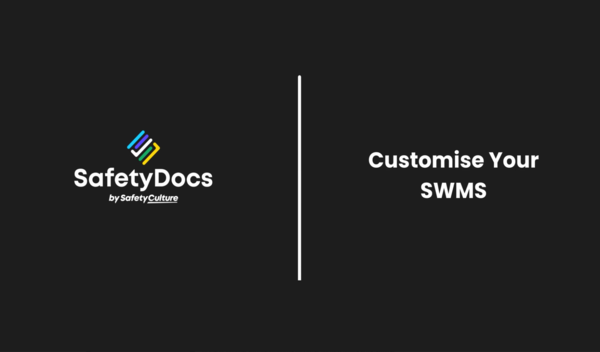Security System Installation Safe Work Method Statement
- Instant Document Delivery via Email.
- Add to your existing management system.
- Can assist in ensuring workers are adequately trained.
- Customisation instructions provided.
- Microsoft Word Format (Fully editable).
- Only pay once (no subscriptions required).
Security System Installation Safe Work Method Statement (SWMS)
This Security System Installation Safe Work Method Statement (SWMS) covers hazards and controls associated with the installation of security/CCTV systems etc. both exterior and interior works. This SWMS includes installation works on construction sites and existing premises.
Job Steps Covered in Security System Installation SWMS
- Training on Health Effects Associated with Respirable Crystalline Silica Dust: Highlights educating workers on identifying and preventing dust exposure.
- Planning: Helps to ensure electrical planning and design are within safety standards.
- Arrival On-site, Site Assessment & Unloading of Materials/Equipment: Focuses on safe positioning and hazard assessment upon arrival.
- Work Area Set-up: Establishes secure work zones to prevent unauthorised access.
- Locate & Isolate Existing Services: Identifies and mitigates risks associated with existing utilities.
- Environment: Addresses environmental impact, including noise, air quality, and waste management.
- Housekeeping: Maintains cleanliness to prevent slips, trips, and falls.
- Manual Tasks: Reduces the risk of musculoskeletal injuries through proper handling techniques.
- Working with Powered & Non-powered Tools: Safe use of tools to prevent electrocution and other injuries.
- Working at Height: Implements controls for working safely at elevated levels.
- Working in Roof Space: Addresses specific hazards related to ceiling space work.
- New Equipment (electrical testing): Outlines control measures for safely introducing new electrical equipment.
- Running Cables/Setting-up Equipment: Helps to ensure correct installation to avoid hazards.
- Lifting, Mounting & Installing Components: Focuses on safe installation practices.
- Test & Commission: Verifies the safe operation of installed systems.
- On Completion: The site is secure and hazards are addressed post-installation.
- Emergency Response: Prepares workers for efficient response to emergencies.
Each purchase of our SWMS comes with a complimentary copy of the Legislation & Codes of Practice Reference List, valued at $19.95. This valuable resource provides an up-to-date overview of relevant laws and standards, further supporting your compliance efforts.
Key Features of the SWMS
- Comprehensive Risk Assessment: Includes a detailed risk matrix to identify and control potential hazards.
- Regulatory Compliance: Adherence to Australian legislation.
- Hazard Management: Outlines controls for high-risk construction work, including environmental and manual task hazards.
- Customisable Document: Allows for easy addition of company logo and specific job details.
Who is it Suitable For?
This SWMS is essential for professionals involved in the installation of security and CCTV systems, including:
- Security system installers
- Electricians
- Construction workers
- Site supervisors
Ensure your team is equipped with the knowledge and tools to safely install security systems. Get your copy today and take a proactive step toward a safer workplace.
- Instant Document Delivery via Email.
- Add to your existing management system.
- Can assist in ensuring workers are adequately trained.
- Customisation instructions provided.
- Microsoft Word Format (Fully editable).
- Only pay once (no subscriptions required).
Security System Installation Safe Work Method Statement (SWMS)
This Security System Installation Safe Work Method Statement (SWMS) covers hazards and controls associated with the installation of security/CCTV systems etc. both exterior and interior works. This SWMS includes installation works on construction sites and existing premises.
Job Steps Covered in Security System Installation SWMS
- Training on Health Effects Associated with Respirable Crystalline Silica Dust: Highlights educating workers on identifying and preventing dust exposure.
- Planning: Helps to ensure electrical planning and design are within safety standards.
- Arrival On-site, Site Assessment & Unloading of Materials/Equipment: Focuses on safe positioning and hazard assessment upon arrival.
- Work Area Set-up: Establishes secure work zones to prevent unauthorised access.
- Locate & Isolate Existing Services: Identifies and mitigates risks associated with existing utilities.
- Environment: Addresses environmental impact, including noise, air quality, and waste management.
- Housekeeping: Maintains cleanliness to prevent slips, trips, and falls.
- Manual Tasks: Reduces the risk of musculoskeletal injuries through proper handling techniques.
- Working with Powered & Non-powered Tools: Safe use of tools to prevent electrocution and other injuries.
- Working at Height: Implements controls for working safely at elevated levels.
- Working in Roof Space: Addresses specific hazards related to ceiling space work.
- New Equipment (electrical testing): Outlines control measures for safely introducing new electrical equipment.
- Running Cables/Setting-up Equipment: Helps to ensure correct installation to avoid hazards.
- Lifting, Mounting & Installing Components: Focuses on safe installation practices.
- Test & Commission: Verifies the safe operation of installed systems.
- On Completion: The site is secure and hazards are addressed post-installation.
- Emergency Response: Prepares workers for efficient response to emergencies.
Each purchase of our SWMS comes with a complimentary copy of the Legislation & Codes of Practice Reference List, valued at $19.95. This valuable resource provides an up-to-date overview of relevant laws and standards, further supporting your compliance efforts.
Key Features of the SWMS
- Comprehensive Risk Assessment: Includes a detailed risk matrix to identify and control potential hazards.
- Regulatory Compliance: Adherence to Australian legislation.
- Hazard Management: Outlines controls for high-risk construction work, including environmental and manual task hazards.
- Customisable Document: Allows for easy addition of company logo and specific job details.
Who is it Suitable For?
This SWMS is essential for professionals involved in the installation of security and CCTV systems, including:
- Security system installers
- Electricians
- Construction workers
- Site supervisors
Ensure your team is equipped with the knowledge and tools to safely install security systems. Get your copy today and take a proactive step toward a safer workplace.


